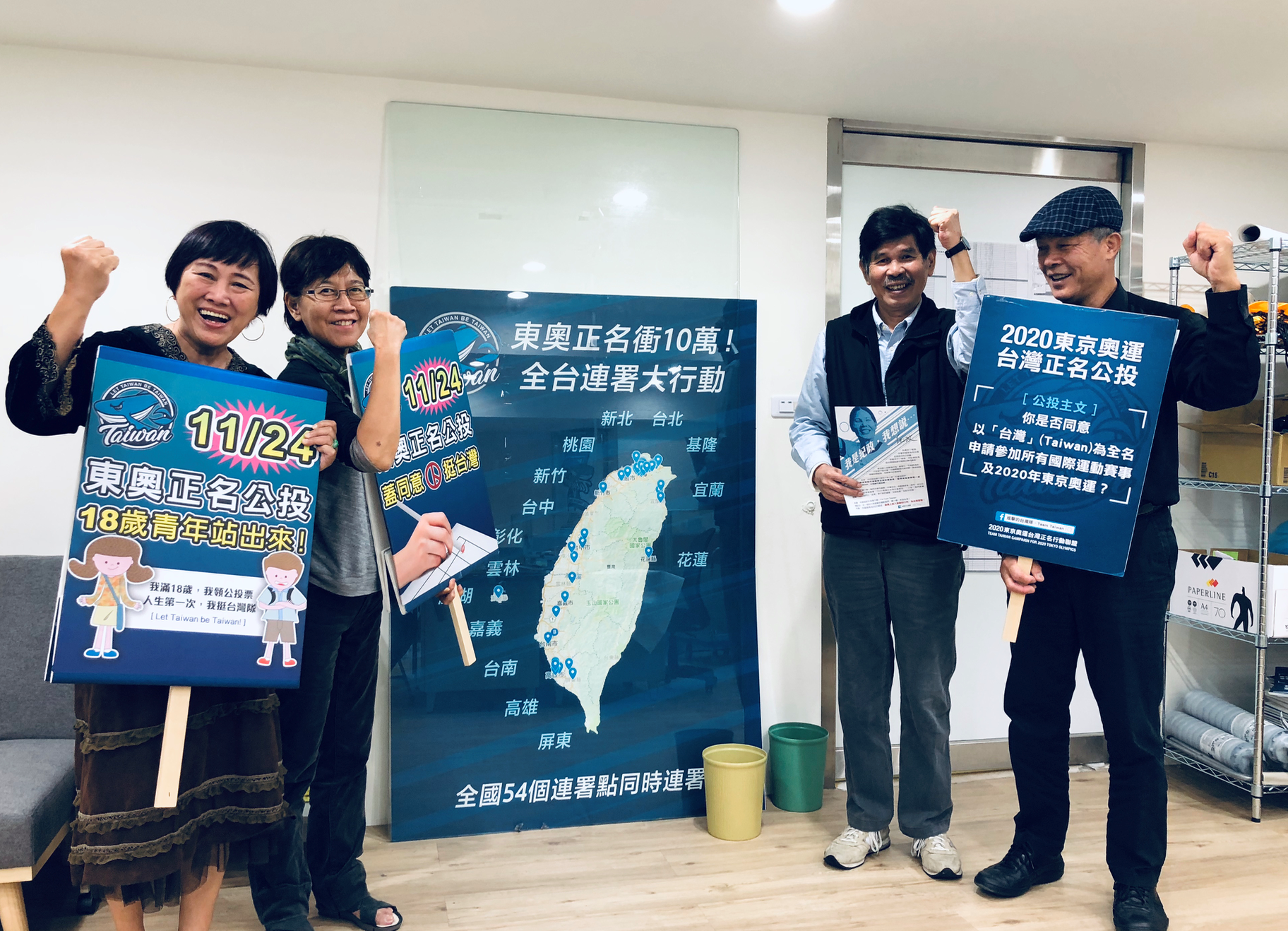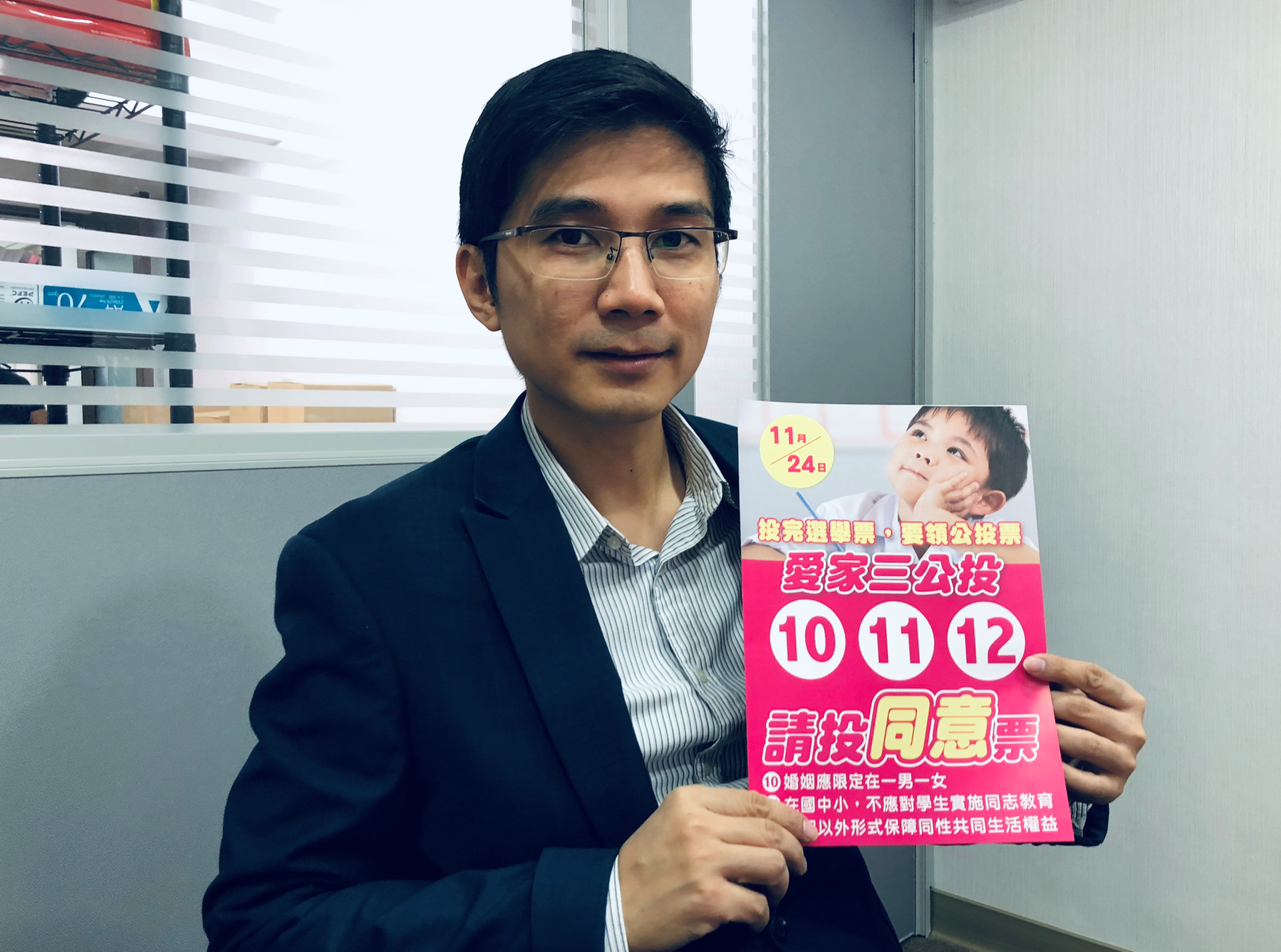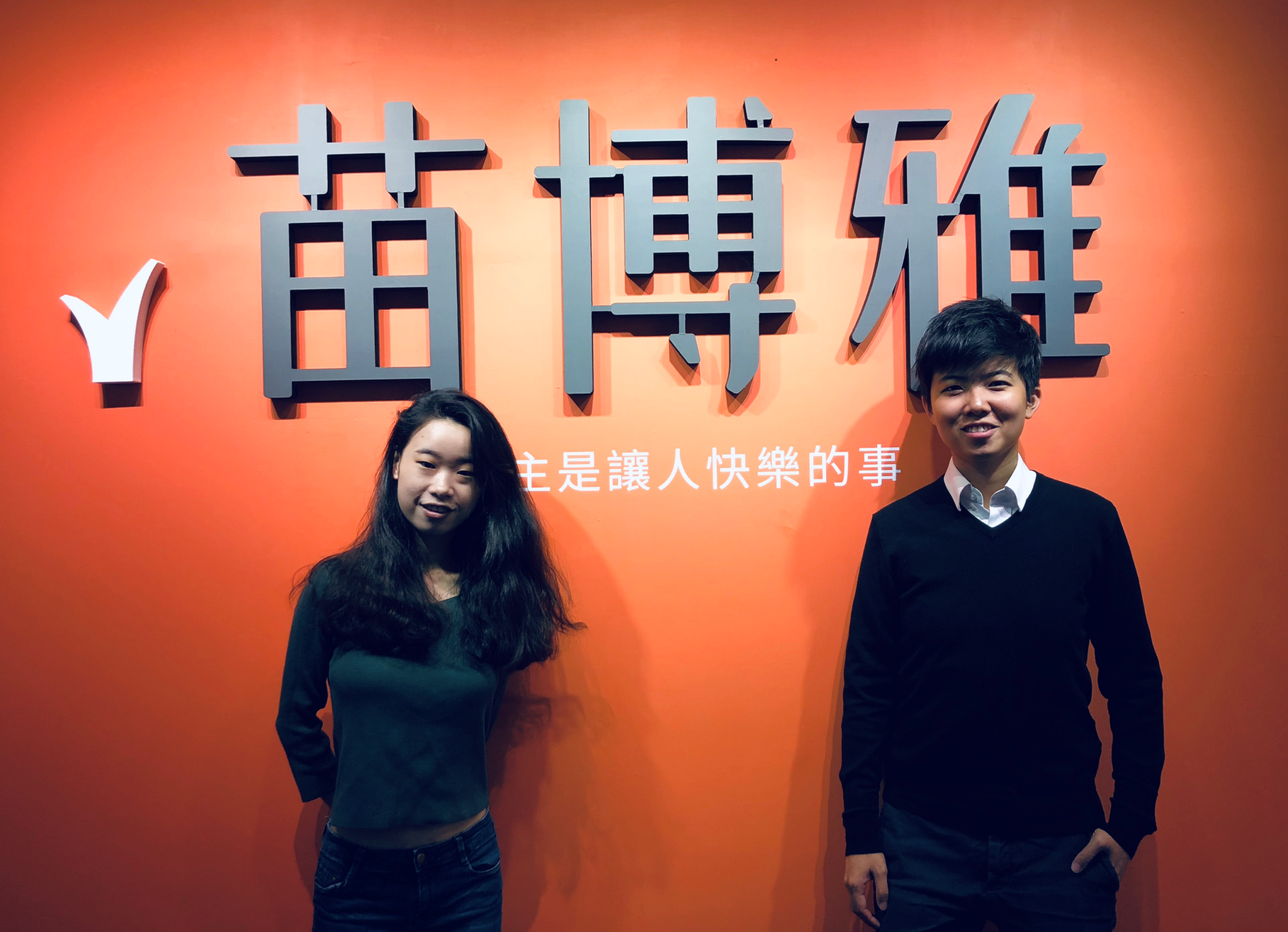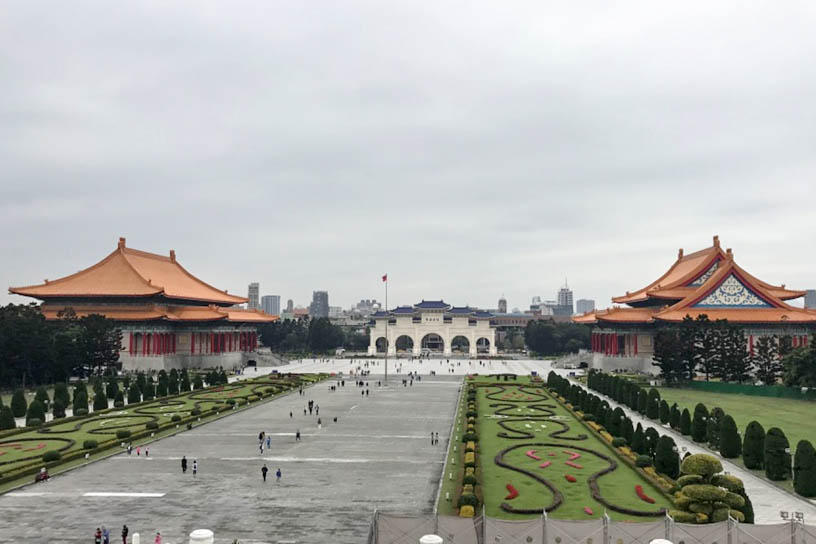
The making of an unlikely modern direct democracy

The odds are seemingly against Taiwan in a world region with a lot of backward looking leaders, a difficult autocratic history and being surrounded by competing superpowers.
But the society of 23 million people is steadily moving forward – to become a beacon of global participatory democracy.
This day starts early in the private apartment converted into a campaign headquarters of the “Coalition for the Happiness of Our Next Generation”.External link
It feels like having entered an anthill: even the smallest space of this four-room apartment near the national parliament in downtown Taipei is filled with campaign material. Dozens of mainly young people are packing kits to be sent out across the country.
“We are approaching fever pitch in this campaign, and it is all very new to us,” says Frank Tseng. The man in his mid-30s is the spokesman and one of the leaders of the coalition.

Indeed, it is all new, not just for Frank and his team. Taiwan, an island country in the West Pacific between Japan, the Philippines and China is heading towards a major milestone of its young democratic history.
On November 24, almost 19 million citizens are called to decide on ten different nationwide issues, all initiated by the citizens themselves through initiatives and referendums.
Earlier this year a new so-called Referendum Act came into force, creating “one of the world´s best direct democracy laws”. And now, less than a year later, this remarkable island society made up of many different ethnic groups, including 16 aboriginal peoples, is about to take major ballot decisions on issues including same-sex marriage, nuclear power, sex education, food security and the re-naming of its delegation to the Olympics Games.
“In a first step we had to gather a couple of thousand signatures to get into the process,” says Frank. He stresses that his “Happiness-Coalition” is not against gay people, but wants to keep marriage and civil unions apart.
After a historic decision by Taiwan’s constitutional court, which declared the current marriage laws as illegal, civic groups from various sides have eagerly made use of the new citizens’ initiative tool to fine-tune the legislation for same-sex marriage and sex-education in Taiwan.
Five out of the ten substantive issues put to the vote on November 24 are dealing with these questions. It is unprecedented in this part of the world, where questions of sexual orientation in many neighbouring countries still are treated as a taboo.

“Last weekend more than 100,000 people participated in a demonstration for an equal and open legislation,” says Miao PoyaExternal link, one of the leaders of the two initiatives for equal marriage and sex education in schools.
“For these initiatives we gathered more than the double of the necessary half a million signatures in just three months,” she says.
The new laws introduced earlier this year requires at least 288,000 valid signatures within six months. The law also provides for the possibility of an electronic system to collect the signatures, but this has not yet been introduced.
The consequence: wherever you are in Taiwan these days, you will see campaigners with petition sheets approaching people to explain their proposals and asking for support.
As Miao Poya – another very committed young Taiwanese – is also running for the parallel local elections in the Taipei’s Da`an-Wenshan district on November 24, she has established her own campaign headquarters in a busy shopping street.
“I have five employed staff and about 20 volunteers and finance this work mainly through micro-online-contributions,” she says while standing in front of a wall with her campaign slogan: “Democracy Should Make You Happy”.

Even for me, a democracy reporter used to cover campaigns, elections and referendums, this day in Taipei is a profoundly remarkable experience.
Never before have I seen people so committed to and conscious of the careful use of the new opportunities, which were created by them.
Democratic change
The first free and fair elections were held just over 20 years ago, and it was in year 2000 that a first democratic change of power took place.
While other post-autocratic societies need many decades to make another step, Taiwan has stormed ahead towards a modern democracy, which allows citizens not only to elect their leaders, but they can also set the political agenda and get involved in the decision-making process.
“We are so happy to have come so far. But this is just a beginning,” says a senior journalist I meet at the Taiwan Broadcasting Company, on another stop on my tour in Taipei.
There are indeed still plenty of challenges and hurdles, some of them of practical nature. For instance, there are 30 public debates which the public-service broadcaster is about to conduct in the coming days and weeks – three per issue.
Radio Taiwan InternationalExternal link is broadcasting in three national (Taiwanese, Mandarin, Hakka) and 13 global languages. “It is very important, that the world knows about what we are doing in this country,” says Chiu Bihui, who leads the German language programme at RTI.
Emotional issue
Not just because of its position as an island, but also due to specific historic circumstances (as the unresolved Chinese claims to island nation), Taiwan’s international appearances are not as self-evident as that of other countries.
“Since the 1980s our delegations to the Olympic Games have been labelled as ´Chinese Taipei´,” says Yang Jong-Her, the leading organiser of yet another citizens initiative, which the Taiwanese will vote on in three weeks.
The so-called “Taiwan 2020”External link proposal was able to gather more than 520,000 signatures this summer. It calls for new legal rules for the Olympic delegation.
Of course, this initiative has more symbolic value as it stands for the broader question about the complicated issue of statehood of the island.
“It is a deeply emotional issue,” says Yang, whose headquarters look very different from those of the supporters and opponents of same-sex campaigns. In this huge space located in the offices of a sports association, mostly senior activists send out campaign material.
Safeguards
Taiwan’s democracy is far from being solidly consolidated as can be seen for instance in the comprehensive safeguards set up during election day.
“We need to ensure that really every vote is counted,” says In-Chin Chen, the chairman of the Central Election CommissionExternal link I talk to briefly in-between meetings with initiative organisers.
More than 200,000 election officials will deployed during election and referendum day on November 24 and every vote will be shown to independent observers before being counted.

More
How Taiwan got one of world’s best direct democracy laws
“We have a history of vote-buying and result rigging,” says Chen, who may be facing the busiest working week of his life. In fact, the voting procedure is complicated by the fact that 18-year-old Taiwanese citizens will be able to take part vote in the ten referendums, but not in the local elections.
Under current rules, citizens have to be at least 20 years old to eligible for participation in elections.
Postal vote or over the internet is not allowed in Taiwan. Many would argue, it is due to the threats of an unfriendly neighbouring state, which might otherwise try to influence the vote.
Unlike other countries which would restrict rights at a domestic level as a result of an outside threat, Taiwan does the contrary: it is using every second of its time to learn, to practice and to develop.
During a series of concluding evening meetings in a downtown Taipei bar I understand, what this means.
I’m joined by Mac Chiang, a doctor fighting for the right to die and Ping Xu, a pianist engaged in the movement for a basic income.
Both of them say they never thought of becoming political activists but with the new tools of modern direct democracy at hand, they have suddenly propelled themselves into the frontline of the public debate.
Chiang is now the lead campaigner for a citizens’ initiative calling for the right to assisted suicide and has started collecting signatures.
Xu for her part prepares for a nationwide basic income initiative to be launched next autumn.
“It is the time to stand up for our values, our democracy and our country,” they agree before we part in typhoon-hit Taipei – a true hot spot of democracy worldwide at this moment.

In compliance with the JTI standards
More: SWI swissinfo.ch certified by the Journalism Trust Initiative




























You can find an overview of ongoing debates with our journalists here . Please join us!
If you want to start a conversation about a topic raised in this article or want to report factual errors, email us at english@swissinfo.ch.